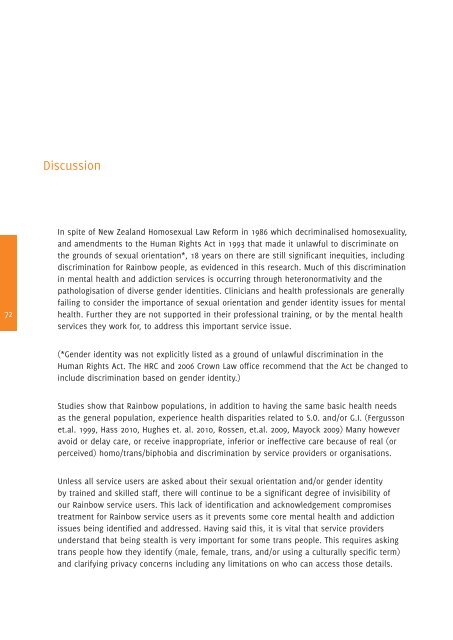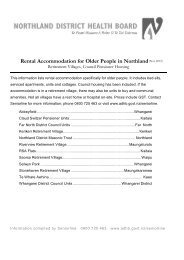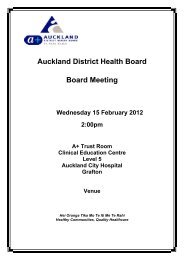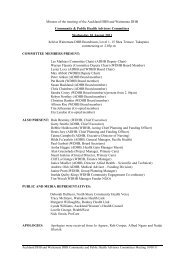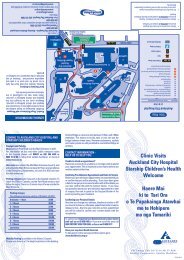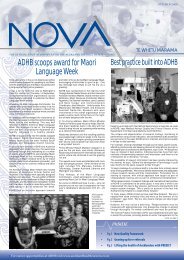Lets talk about sex.... - Auckland District Health Board
Lets talk about sex.... - Auckland District Health Board
Lets talk about sex.... - Auckland District Health Board
Create successful ePaper yourself
Turn your PDF publications into a flip-book with our unique Google optimized e-Paper software.
72<br />
Discussion<br />
In spite of New Zealand Homo<strong>sex</strong>ual Law Reform in 1986 which decriminalised homo<strong>sex</strong>uality,<br />
and amendments to the Human Rights Act in 1993 that made it unlawful to discriminate on<br />
the grounds of <strong>sex</strong>ual orientation*, 18 years on there are still significant inequities, including<br />
discrimination for Rainbow people, as evidenced in this research. Much of this discrimination<br />
in mental health and addiction services is occurring through heteronormativity and the<br />
pathologisation of diverse gender identities. Clinicians and health professionals are generally<br />
failing to consider the importance of <strong>sex</strong>ual orientation and gender identity issues for mental<br />
health. Further they are not supported in their professional training, or by the mental health<br />
services they work for, to address this important service issue.<br />
(*Gender identity was not explicitly listed as a ground of unlawful discrimination in the<br />
Human Rights Act. The HRC and 2006 Crown Law office recommend that the Act be changed to<br />
include discrimination based on gender identity.)<br />
Studies show that Rainbow populations, in addition to having the same basic health needs<br />
as the general population, experience health disparities related to S.O. and/or G.I. (Fergusson<br />
et.al. 1999, Hass 2010, Hughes et. al. 2010, Rossen, et.al. 2009, Mayock 2009) Many however<br />
avoid or delay care, or receive inappropriate, inferior or ineffective care because of real (or<br />
perceived) homo/trans/biphobia and discrimination by service providers or organisations.<br />
Unless all service users are asked <strong>about</strong> their <strong>sex</strong>ual orientation and/or gender identity<br />
by trained and skilled staff, there will continue to be a significant degree of invisibility of<br />
our Rainbow service users. This lack of identification and acknowledgement compromises<br />
treatment for Rainbow service users as it prevents some core mental health and addiction<br />
issues being identified and addressed. Having said this, it is vital that service providers<br />
understand that being stealth is very important for some trans people. This requires asking<br />
trans people how they identify (male, female, trans, and/or using a culturally specific term)<br />
and clarifying privacy concerns including any limitations on who can access those details.


